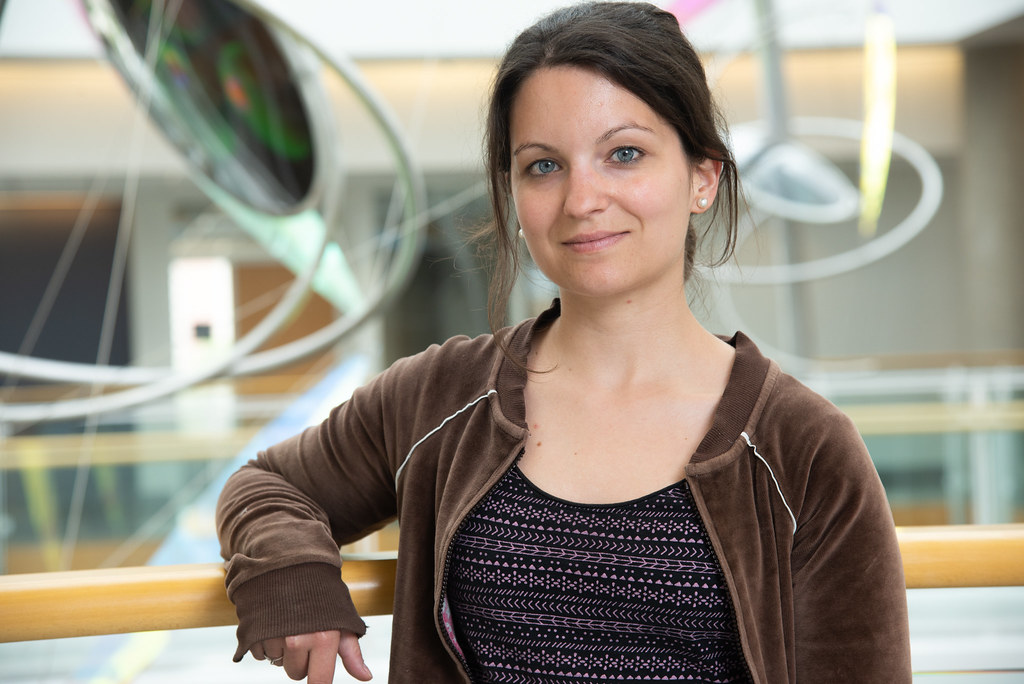Published on

By Mariah Cox | Bond LSC
International flights usually require months of planning to score the best deals and to ensure minimal layovers, so Sara Izquierdo Zandalinas, a post-doc in the Ron Mittler lab, was faced with a challenge as she flew to Spain twice within a month’s span this summer.
But the reason for those flights was a pleasant surprise. Zandalinas recently received the 2019 Sabater award given every two years at the Meeting of the Spanish Society of Plant Physiology held in Pamplona Spain from June 26-28. This award is a tribute to Francisco Sabater, a widely recognized plant physiologist of Spain, and is the most prestigious award given to early-career Spanish researchers in plant science.
“I couldn’t believe it because they told me I won one month before the conference,” said Zandalinas. “At that time, I was in Spain at another conference for 10 days, so I had to come back to Missouri and then I had one-and-a-half weeks to prepare a keynote presentation before I had to go back to Spain.”
Nonetheless, she was thrilled.
Zandalinas was recognized for her research on the role of Reactive Oxygen Species (ROS), a fancy term for reactive chemical species such as peroxides, in regulating plants responses to stresses and combined stresses, such as heat or drought.
“Studying combined stress is very important because with climate change, as temperatures are increasing, plants are facing not only one single stress in the field but also other additional stresses,” said Zandalinas. “Previous reports in this lab have shown that plants response to a single stress is completely different from the response of plants to multiple stresses.”
As a result, Zandalinas has spent the past two-and-a-half years identifying which genes are involved in acclimating plants to combined stresses. By selecting the genes that hold up well against certain stresses, scientists can begin to develop plants that are more tolerant.
When she was completing her undergraduate degree at the Polytechnic University of Valencia, Zandalinas recalls many of her friends and colleagues being drawn to the medical aspect of science. However, not many people were interested in studying plants.
Zandalinas, too, thought she was heading toward a career in the medical field until her final undergraduate project producing human antibodies in tobacco plants changed her mind.
“I remember thinking, ‘how is it possible that we can produce human antibodies in plants and in the future apply it to humans?’ I was fascinated by the powerful tools we have of using plants as bio-factories,” said Zandalinas.
From there, she received two master’s degrees in chromatographic techniques and analytical techniques used in clinical labs and a Ph.D. in plant biotechnology from Jaume I University in Castellon, Spain. Afterward, she began her post-doc with Ron Mittler at the University of North Texas before the lab moved to MU last fall.
While she enjoys having the resources for her research such as MU’s DNA Core and the Proteomics Center, Zandalinas dreams of the sunny skies and warmth back home in Spain.
Following the completion of her post-doc, Zandalinas hopes to establish her own lab back in Spain. She explains that it won’t be as easy to find a research position in Spain because so many people are completing their post-docs in the U.S. and Europe and are wanting to return to Spain.
“In one to three years I hope to receive a research grant from the Spanish government to begin my own research investigations,” Zandalinas said.
As a result of being awarded the 2019 Sabater Award, Zandalinas is now the Spanish candidate for the award for young European researchers in the biannual conferences of the Federation of European Societies of Plant Biology which will take place in Turin, Italy from June 29-July 2, 2020.